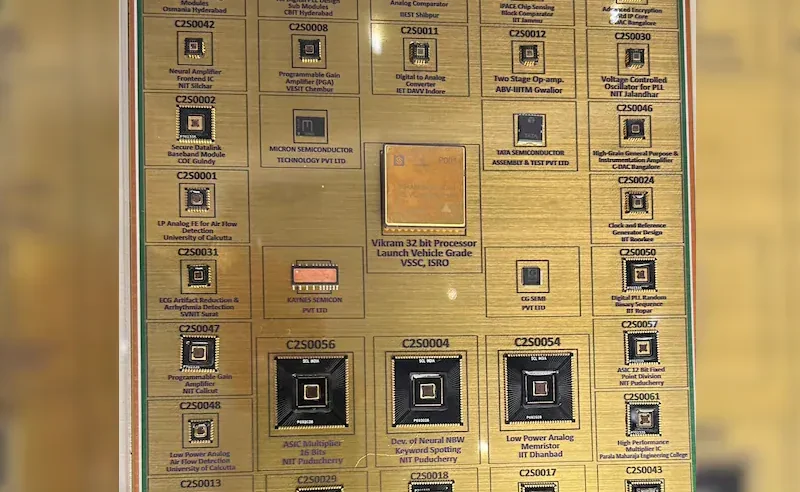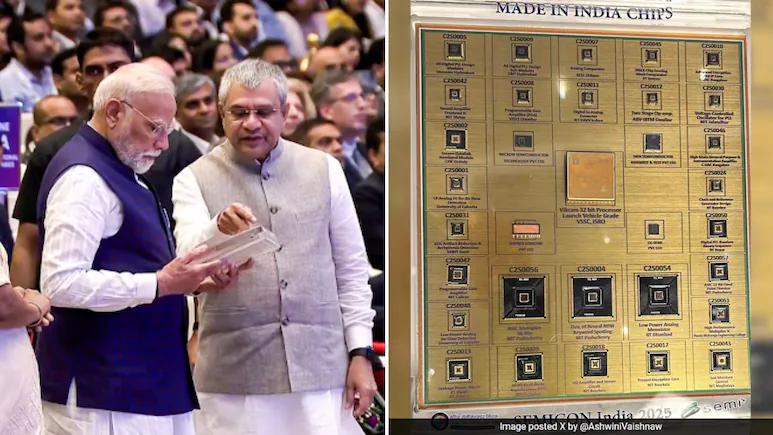India’s first Made in India chip launched
India has taken a historic step in the semiconductor sector. Prime Minister Narendra Modi was presented with a gift at Semicon India. The indigenously made 32-bit microprocessor chip was gifted by the Semiconductor Laboratory (SCL). This chip was gifted to Modi by Union Minister Ashwini Baishnab on behalf of SCL, which is run by ISRO.

Image Posted By Aswini Baishnab In His X Handel
Ashwini said that India has taken its self-reliance in the field of semiconductor device manufacturing towards progress today. This chip has been named Vikram-32. This chip, made entirely with indigenous technology, has been developed for use in space vehicles. SCL claims that this chip will play a crucial role in any adverse situation.
Meanwhile, during the PSLV-C60 launch, the indigenously manufactured Vikram 3201 device was experimentally connected to it. Which is said to have been successfully operated in space. However, this Vikram chip developed by ISRO was displayed for the first time last March. After the launch of the Semiconductor Mission in India in 2021, India’s role in the field of semiconductor production has been proven to be significant with this indigenous chip.
CHECK MORE : one rupee note value in market 2025
Origin
The Vikram-32 chip was designed by the Vikram Sarabhai Space Centre (VSSC) and fabricated at SCL’s 180nm CMOS facility in Mohali, Punjab. It is the successor to VIKRAM1601, a 16-bit microprocessor that has powered ISRO’s launch vehicles since 2009. The new processor was formally inducted into ISRO’s programme in March, along with another chip called KALPANA-3201.
Features
• The Vikram-32 is built on a 32-bit architecture, which allows it to process larger amounts of data more efficiently.
• It supports floating-point computation, enabling it to handle complex calculations required in aerospace and satellite missions.
• The processor uses a custom Instruction Set Architecture (ISA) tailored to space applications.
• It supports programming in the Ada language, which is widely used in aerospace engineering.
• All supporting software tools, such as the compiler, assembler, linker, and simulator, were developed in-house by ISRO.
• Work is also underway to add support for the C programming language.
Uses Beyond Space
Although the Vikram-32 has been built primarily for satellites and rockets, its rugged design makes it suitable for other critical areas as well. Potential applications include defence systems, aerospace technologies, advanced automotive solutions, and high-reliability energy systems.
The development of the Vikram-32 is a major achievement under the India Semiconductor Mission launched in 2021 and the Design-Linked Incentive (DLI) scheme. It cuts India’s dependence on imported microchips and is a big step toward Atmanirbhar Bharat (self-reliant India).
ALSO READ : toxic movie release date





